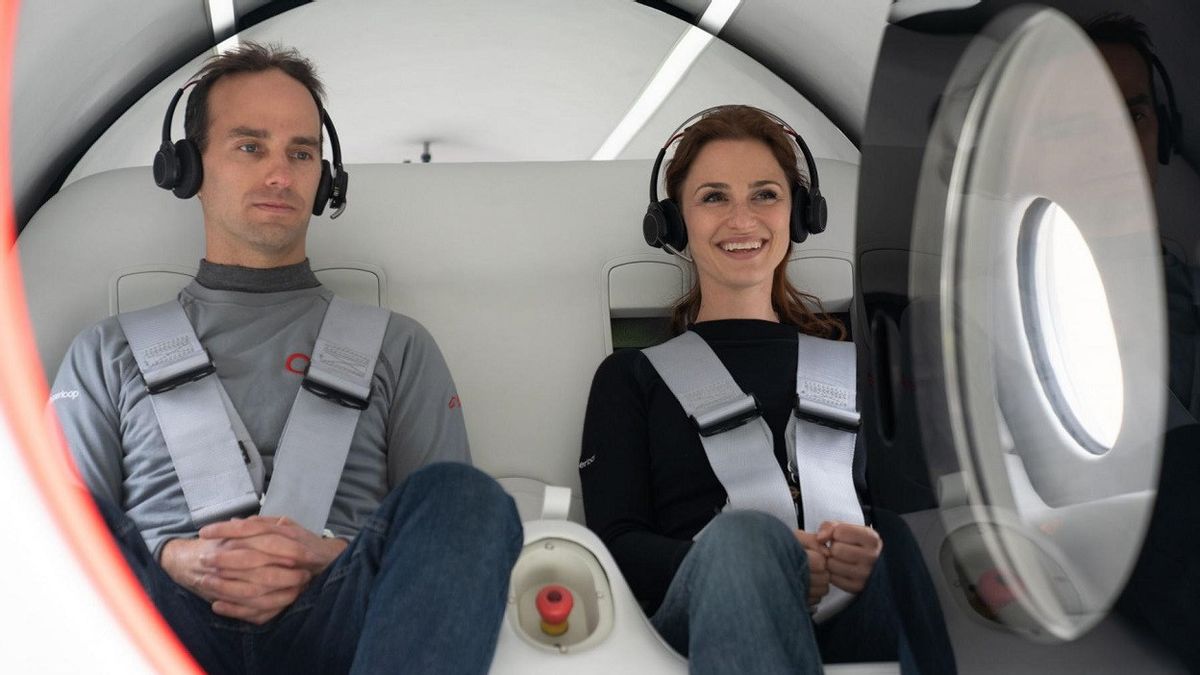JAKARTA - If there is no transverse aral, the revolution of human transportation system may start from a desert north of Las Vegas, United States.
It's where Virgin Hyperloop, whose partners include world conglomerate Richard Bronson of the Virgin Group, is developing technology for passenger pods that will glide at speeds of up to 750 miles per hour, through almost air-free vacuum tunnels using magnetic levitation.
"It's going to feel like a plane at takeoff and once you're at speed," co-founder and Chief Executive Josh Giegel told Reuters.
"You won't even experience turbulence, because our system is basically capable of reacting fully to all that turbulence. Think noise cancellation but impact dampers, if you will," he continued.
Off-white materials and rear glass make the pod appear larger and more 'inviting' to new users, Giegel said.
"This pod is really the embodiment of how we take something that is an idea and make it a reality for us to sit on?" continued Giegel.
The pod will hold 28 passengers and can be adapted for long and short distances as well as for cargo.
Although still in its early stages, Giegel predicts commercial operations by 2027 at the earliest. Giegel said this could be the first form of transportation in 100 years to revolutionize travel, as cars, trains and planes do.

For the record, rocket scientist Robert Goddard invented the idea of 'vactrain' in the early 1900s. France tried to develop the Aerotrain in the 1960s and 1970s, but a lack of funding shut down the project.
Then, entrepreneur Elon Musk revived interest in this in 2013 by explaining how modern systems would work. Giegel, who was working at Musk's SpaceX at the time, said that technology is now catching up.
"The required batteries, power electronics, and some previous sensors are not ready. We are at the newest end of a high-speed autonomous battery-powered vehicle," Giegel explained.
Virgin Hyperloop aims to develop its first passenger route in India, where the transport system is overloaded. Followed by development in Saudi Arabia, which lacks infrastructure.
"It starts with two people driving a Hyperloop. It ended with hundreds of millions of people riding hyperloops and that's the 2020s, the roaring 20s," Giegel said.
The pod is scheduled to be displayed at the Smithsonian Historic Arts and Industries Museum's "FUTURES" exhibition in Washington, USA by the end of the summer.
The English, Chinese, Japanese, Arabic, and French versions are automatically generated by the AI. So there may still be inaccuracies in translating, please always see Indonesian as our main language. (system supported by DigitalSiber.id)








